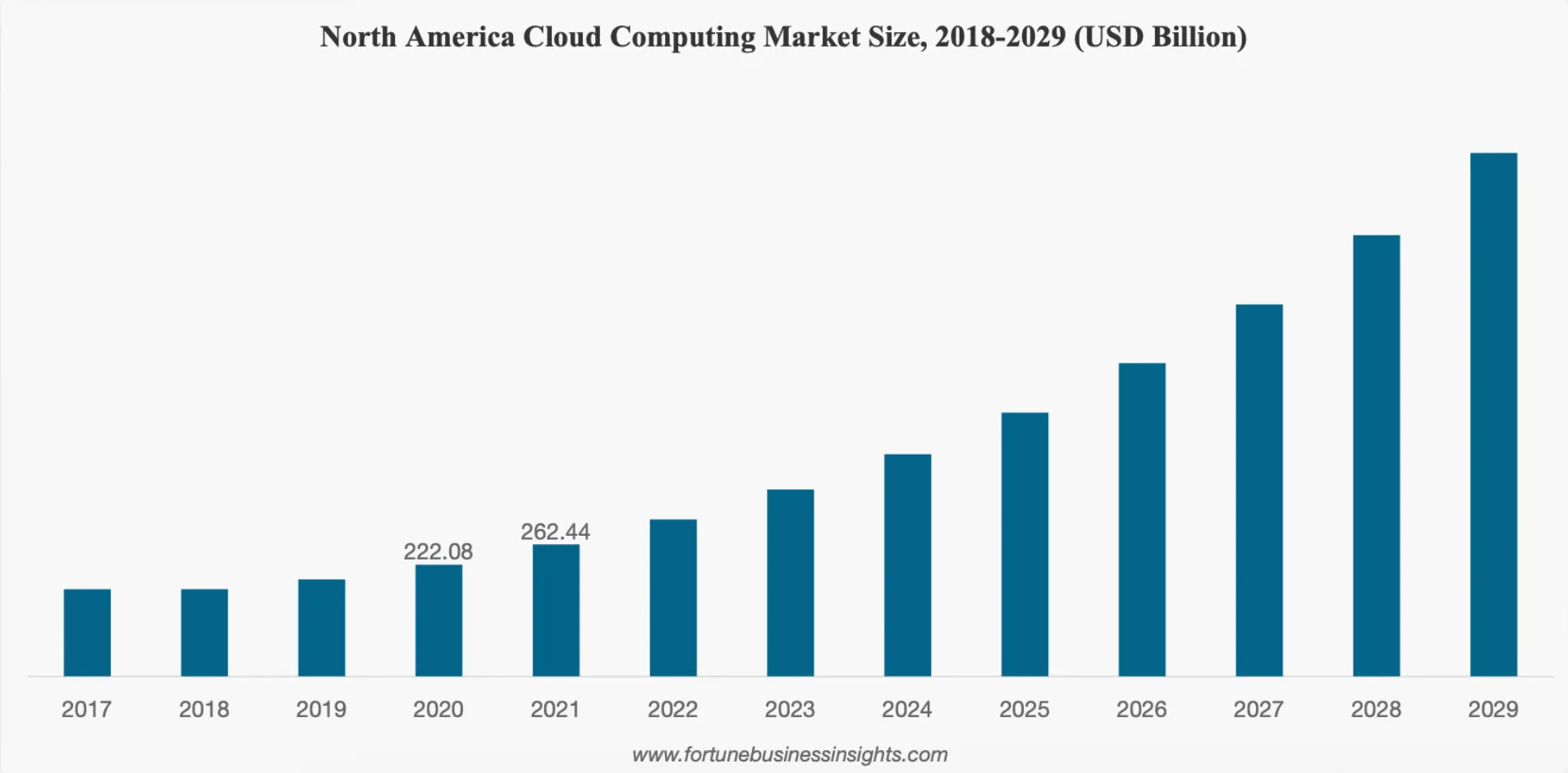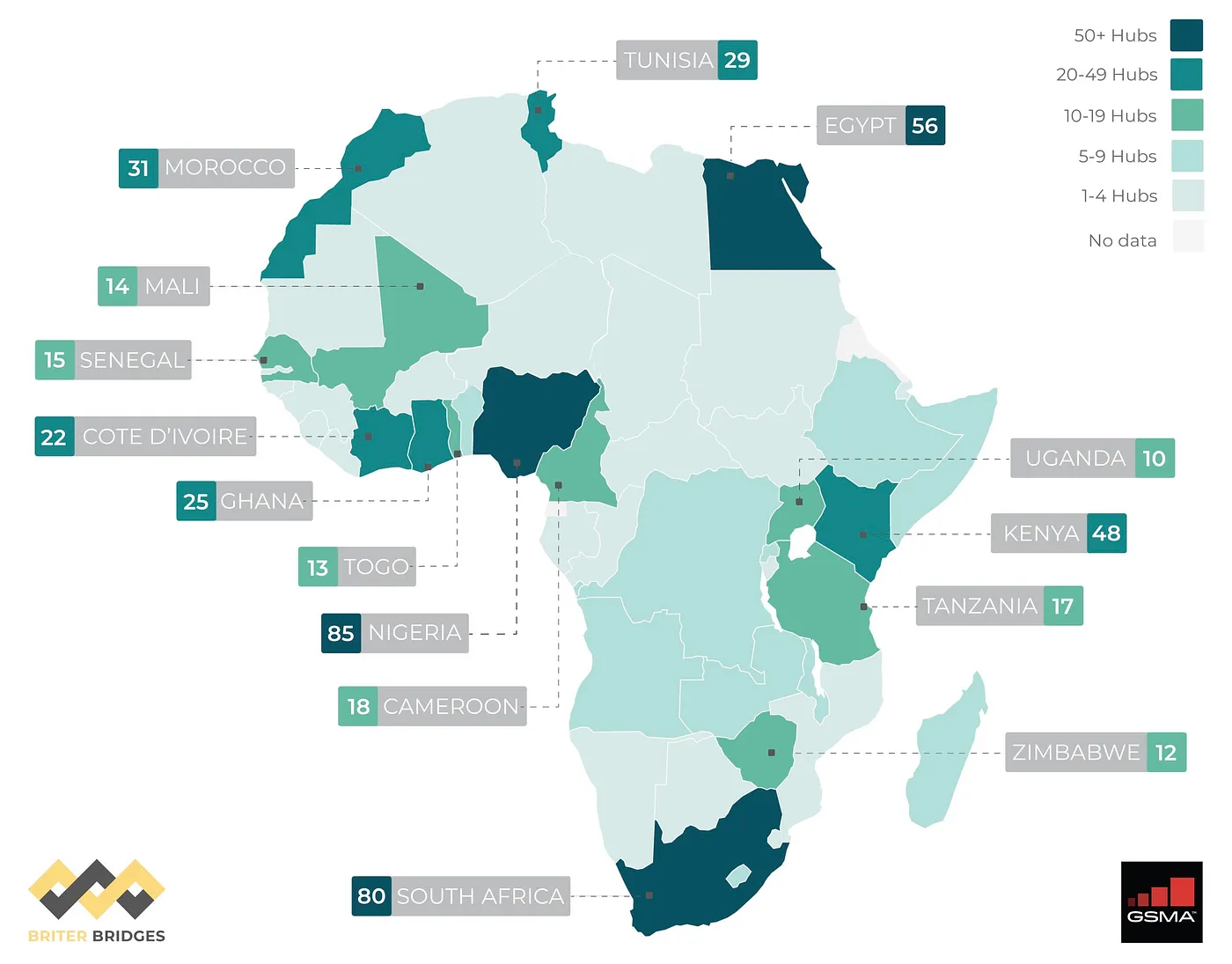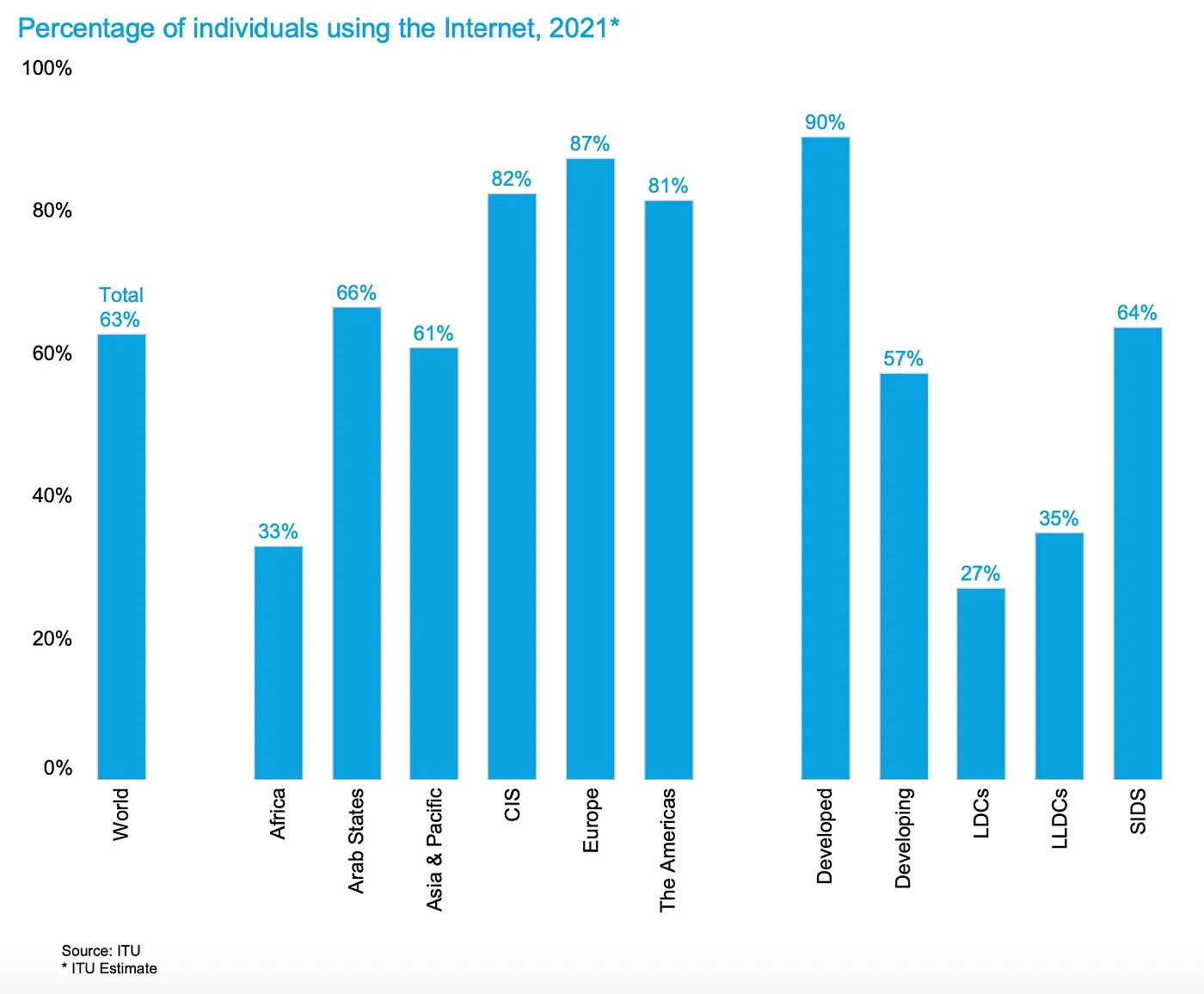
Cloud solutions provide enterprises access to scalable computing resources and flexible capacities that enhance business agility, innovation speed, and service delivery.
According to a Google Cloud Survey, over 40% of global tech and business leaders have plans to increase their use of cloud-based services. The result — international cloud adoption will increasingly expand. Already, the global cloud computing market is estimated to reach over $1,712 billion by 2029 from $480 billion in 2022 at a CAGR of nearly 20%.

Today, the use of cloud services in Africa is on the rise, especially having been supercharged by the COVID-19 pandemic. From businesses looking to leverage new applications to startups looking to implement cloud-powered models, cloud solutions are transforming African enterprises and emerging as an essential digital transformation pillar in the region.
In 2023 and for the future, we expect to see organizations continue to leverage cloud services to access innovative business technologies as well as drive efficiencies in their operations and processes.
In this article, we’ll delve into the current state of IT infrastructure and cloud solutions in East Africa and discuss likely future trends for this industry in the region.
Current State of IT-Infrastructure and Cloud Solutions in East Africa
The current cloud computing market in East Africa is promising and rapidly gaining ground due to the increasing demand for digital transformation and delivery. Businesses and organizations across various industries and sectors in East Africa increasingly realize the benefits of cloud computing and are shifting toward cloud applications.
Some significant drivers toward the cloud adoption growth include:
- Increased awareness regarding cloud technologies benefits for business
- Business expansion through global vendors
- Government initiatives to promote the latest technologies
- Increased investments in digital transformation by governments
Africa’s technology growth has primarily been made possible by several active tech hubs in Egypt, Kenya, Nigeria, and South Africa. Kenya is central to East Africa’s technology space and has almost 50 tech hubs.

In April 2022, the Kenyan government initiated a 10-year Digital Masterplan 2022–2032 for leveraging and deepening ICT contribution towards accelerating economic growth. The digital master plan includes vital pillars, including digital infrastructure, digital services and data management, digital skills, and driving digital innovation for entrepreneurship.
Despite the promising growth of the African cloud computing market, the continent needs to catch up due to several challenges. The main challenges are the need for adequate infrastructure, limited bandwidth provisions, point of presence (POP) issues, latency issues, workload complexities in the cloud, and regulatory policies, which can vary between continents.
Furthermore, the East Africa region, like the rest of the world, has needed more cloud professionals with the necessary skills to implement and manage cloud-based solutions.
Emerging Trends in IT-Infrastructure and Cloud Solutions in East Africa
East Africa has seen significant growth in IT infrastructure and cloud solutions development recently. The region has experienced a surge in technology startups, many leveraging cloud services to develop and deliver their applications.
Some of the latest trends in IT infrastructure and cloud solutions in East Africa include the following:
1. Cloud Adoption and Acceleration
Cloud adoption is a crucial priority for organizations in East Africa. With the demand for cloud services increasing, cloud adoption will likely grow and gain momentum in the region in 2023 and beyond.
In a digital transformation era, more and more companies across various industries and sectors will likely leverage cloud-based solutions to automate and digitize their business processes for increased efficiency, growth, and productivity.
Most businesses in Africa select a combination of private and cloud solutions because the option allows them to choose a specific cloud solution, avoid vendor lock-in, and reduce costs. One of the reasons companies in East Africa opt for hybrid cloud solutions is that the option allows them to reap the benefits of both models. The hybrid approach also helps organizations meet regulatory, privacy, and security requirements.
Global cloud technology companies, including Amazon, Google, Microsoft, and IBM, have been leading players in the cloud computing market in Africa, offering a range of cloud-based solutions. Locally, companies such as Safaricom, Liquid Telecom, and Dimension Data have made significant inroads into the East African cloud market.
However, another compelling opportunity for East African organizations looking to leverage stable and secure cloud solutions is through global infrastructure cloud providers with a local presence who can offer customized solutions that cater to the unique business needs in the region.
Servercore is a recently launched cloud solutions provider with a local presence in a Tier III data center in Nairobi, Kenya. We provide high-quality cloud services at affordable prices, helping businesses in East Africa quickly deploy IT infrastructure and focus on productivity and growth.
2. Mobile and Internet Penetration
The uptake of the Internet accelerated during the pandemic, according to ITU. The same study says Internet use in Africa jumped by 23% between 2019 and 2021.

In Africa, smartphone usage has drastically increased. In East Africa specifically, Kenya has one of the highest mobile subscriptions and the highest share of internet usage from mobile phones compared to desktops.
Also, in an Internet Society (ISOC) study, Nigeria and Kenya were ranked at stage two (2), and only South Africa at stage three (3), where the stages determine the level of maturity of Internet services for African countries.
The high growth of mobile and internet penetration in East Africa has driven digital services growth in the region. With the increasing demand for digital services, more companies will likely invest in IT infrastructure and cloud solutions to improve their business processes.
3. Cloud Security and Privacy
As more organizations store their data in the cloud, there is a growing concern about data security and privacy. In East Africa, there has been an increasing demand for cloud-based security solutions driven by the need for improved protection against cyber attacks.
Many organizations are turning to cloud-based security services offering real-time threat detection and response to help them stay ahead of evolving threats. In 2023, we expect to see more investment in security solutions to protect sensitive data.
However, according to a recent study, assessing security issues and challenges in cloud computing among African public institutions is crucial.
Kenya has implemented several data protection regulations, including the Data Protection Act (DPA) 2019, which aims to protect personal data from unauthorized access, use, and disclosure. This act applies to all entities that process personal data, including those that use cloud computing services. As such, businesses in Kenya must comply with these regulations to avoid any legal implications.
There has been a growing cybersecurity awareness in East Africa, with individuals and businesses becoming more conscious of the cloud’s risks. This has led to a greater emphasis on security awareness and training, with more organizations investing in cybersecurity education.
Cloud Security Audits and Mobile Device Security have also become increasingly critical as businesses seek to ensure that their cloud service providers adhere to industry best practices and regulatory requirements.
Now that we’ve explored the latest IT infrastructure trends, it’s time to focus on the future. In the next post, we’ll take a closer look at how industry experts predict the IT infrastructure landscape will evolve in the coming years. From emerging technologies to shifting business priorities, we’ll explore the factors that will shape the future of IT infrastructure and what organizations can do to stay ahead of the curve. Let’s dive in!